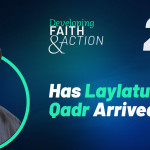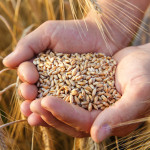Intro | 1 | 2 | 3 | 4 | 5 | 6 | 7 | 8 | 9 | 10 | 11 | 12 | 13 | 14
15 | 16 | 17 | 18 | 19 | 20 | 21 | 22 | 23 | 24 | 25 | 26
As Muslims, we are aware of the importance of thanking Allah, our Creator, for the innumerable bounties He continues to bestow upon us; food, drink, shelter, health, loved ones, children and, more importantly, the ability to display thankfulness itself.
However, many of us become so preoccupied with mundanely displaying gratitude towards Allah, we forget about the true essence of shukr.
What is the real essence of shukr?
The Prophet (ﷺ), in one instance, provided his companions with a refreshing insight into the true meaning of shukr:
لاَ يَشْكُرُ اللَّهَ مَنْ لاَ يَشْكُرُ النَّاسَ
“Whoever does not thank people has not thanked Allah.” [1]
In this report, we are taught that the quality of our shukr to Allah hinges upon the level of shukr we display to others!
Confronting questions
Here are a few thought-provoking questions that this report prompts us to contemplate:
- When was the last time we showed thankfulness to our friends, for their support and courtesy during our testing times?
- If we have siblings, how often do we express our appreciation to them for the thoughtful actions they carry out for us?
- If we have children, have we ever thanked them for the indescribable joy they bring to our empty lives?
Effects of thanking others
The valuable relationships that we share with our siblings, relatives, friends, and peers necessitate upkeep and maintenance through the regular display of shukr towards one another.
If we look at our relations through the lens of the above Prophetic statement, we find that through being more grateful, not only will our relations thrive, but we will also become more appreciative servants towards Allah.
Action plan
As we come towards the end of Ramadan, one of the commendable behaviours we can work towards embodying is shukr.
Here are a few practical steps we can take:
- When somebody does a favour for you, irrespective of how minute it may be, convey gratitude to them;
- Those you love and honour, reach out and make them aware of how grateful you are for having them in your life;
- Avoid the display of robotic gratitude through regularly giving some thought to what people do for you.
Coming up
While we think of various ways to become more thankful in our day-to-day dealings, let us have a think about the next topic of this series: helping the elderly.
Do you have elderly folk in your lives who you can look after? If you do, the next article is perfect for you!
Intro | 1 | 2 | 3 | 4 | 5 | 6 | 7 | 8 | 9 | 10 | 11 | 12 | 13 | 14
15 | 16 | 17 | 18 | 19 | 20 | 21 | 22 | 23 | 24 | 25 | 26
Source: Islam21c
Notes
[1] Sunan Abu Dāwud: 4,811









